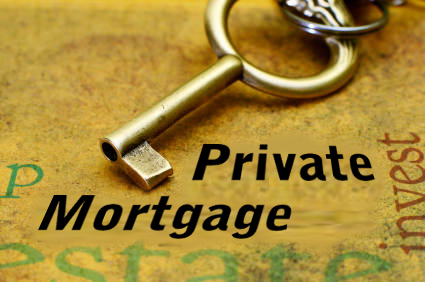Just how It Works: A Comprehensive Overview to Mortgage Lending for First-Time Purchasers
Maneuvering the globe of mortgage lending can be intimidating for new purchasers. Comprehending the essential components like principal, rate of interest, and down settlements is vital. In addition, recognizing the various kinds of home loan and the application procedure can substantially impact one's experience. By checking out key factors that influence rates of interest, buyers may discover beneficial understandings. What else should they consider before making such a considerable economic commitment?
Understanding Mortgage Fundamentals
When newbie purchasers get in the domain name of homeownership, comprehending mortgage essentials comes to be important for making notified choices. A home loan is basically a car loan protected by the home being bought, enabling individuals to get a home without paying the full cost upfront. Purchasers should recognize crucial components, including principal, interest, taxes, and insurance, frequently summed up as PITI. The principal is the quantity obtained, while passion is the cost of borrowing that amount, revealed as a percentage. Taxes and insurance policy are added prices that can noticeably affect regular monthly payments. Buyers need to additionally consider the car loan term, generally 15 or thirty years, which affects settlement quantities and general rate of interest paid. Comprehending credit history is vital, as they influence loan qualification and rate of interest. Grasping these essential concepts encourages newbie purchasers to navigate the mortgage landscape confidently and choose that align with their economic goals.
Kinds Of Mortgage Loan
When taking into consideration mortgage choices, first-time buyers typically come across two key kinds: fixed-rate and variable-rate mortgages. Fixed-rate mortgages supply security with constant payments over the lending's term, while variable-rate mortgages can supply lower preliminary prices that may vary with time. Comprehending these differences is crucial for making a notified choice.
Fixed-Rate Mortgages
Fixed-rate home loans offer security and predictability for first-time property buyers steering the complexities of home funding. With a fixed-rate mortgage, the rate of interest continues to be constant throughout the funding term, commonly ranging from 15 to thirty years. This regular price allows buyers to intend their budget plans properly, knowing that their regular monthly repayments will certainly not fluctuate. Novice purchasers take advantage of this framework as it gets rid of unpredictability in lasting financial commitments. Furthermore, fixed-rate home loans usually feature lower initial rates contrasted to adjustable-rate alternatives, making them an attractive choice for those wanting to establish home equity in time. Generally, fixed-rate home mortgages offer a straightforward path to homeownership, ideal for individuals looking for long-term financial safety.
Adjustable-Rate Mortgages
For newbie homebuyers seeking versatility, variable-rate mortgages (ARMs) can supply an attractive option to fixed-rate loans. ARMs normally offer lower initial rate of interest, making monthly repayments much more economical in the very early years. However, these rates rise and fall after a preliminary set duration, which can result in boosted settlements with time. Consumers should recognize the index and margin that establish future rate adjustments. Commonly, ARMs have change durations of one, three, or 5 years, with periodic caps to limit just how much rates can raise at each change. While ARMs can be helpful for those planning to market or refinance prior to the rate readjusts, they also bring risks if market problems change substantially. Detailed study is necessary for informed decision-making.
The Mortgage Application Process

Secret Elements Influencing Rate Of Interest

Down Settlements and Closing Expenses
Recognizing down repayments and shutting costs is vital for new homebuyers, as these expenditures considerably impact the general price of a mortgage. A deposit is the initial amount paid in the direction of the home's acquisition rate, usually shared as a percentage. It can range from as low as 3% to 20% or even more, depending on the finance type and loan provider requirements. A larger deposit can minimize month-to-month mortgage payments and remove private mortgage insurance (PMI), which secures loan providers in instance of default.Closing prices, on the other hand, include different costs sustained throughout the home-buying procedure. These may include loan origination fees, assessment costs, title insurance, and lawyer costs, normally amounting to 2% to 5% of the home's purchase price. First-time customers should budget for both deposits and shutting prices to guarantee they can secure their mortgage and successfully browse the home-buying process.
Tips for First-Time Homebuyers
What essential pointers can new property buyers follow to browse the commonly difficult process of acquiring a home? Setting a practical budget plan is important. Buyers need to examine their financial scenario, consisting of earnings, browse around here expenses, and possible mortgage payments. Next off, obtaining pre-approval for a home mortgage can supply quality on what one can manage and strengthen their placement when making an offer.Researching communities is equally crucial; buyers need to think about factors such as services, institutions, and future advancements. In addition, it is recommended to function with a qualified realty agent that can offer beneficial insights and advice throughout the buying process.Home examinations ought to not be forgotten, as they can uncover concealed concerns that may influence long-term complete satisfaction. Ultimately, buyers ought to continue to be individual and flexible, understanding that locating the right home may take some time. By complying with these pointers, new homebuyers can come close to the marketplace with confidence and knowledge.
Often Asked Inquiries
What Records Are Needed for Mortgage Pre-Approval?
For mortgage pre-approval, individuals commonly require to provide earnings verification, work background, credit reports, tax returns, bank statements, and details of any type of financial obligations (Private Mortgage Lenders Savannah GA). These records help lenders assess financial ability and identify financing qualification
Can I Get a Home Loan With Bad Credit Score?

Many lenders consider candidates with negative debt, though terms might differ. Higher rates of interest or bigger deposits can be called for. Checking out options with specialized lending institutions or government programs can additionally boost possibilities for approval.
How much time Does the Mortgage Authorization Process Take?
The mortgage approval process typically takes in between 30 to 45 days. Factors affecting this timeline include the lender's performance, the debtor's financial paperwork, and the complexity of the lending application. Hold-ups may take place because of additional needs.
What Happens if I Miss a Home Mortgage Payment?
If a home mortgage repayment is missed out on, late fees might be incurred, and credit scores can endure. Prolonged non-payment might cause repossession process, prompting the lending institution to recover the home after a collection of cautions.
Can I Refinance My Mortgage Later?
Re-financing a home mortgage later is commonly feasible, allowing house owners to readjust their financing terms, rates of interest, or home month-to-month payments. However, eligibility depends upon credit rating, present market problems, and the existing mortgage's terms. Private Mortgage Lenders Savannah GA.